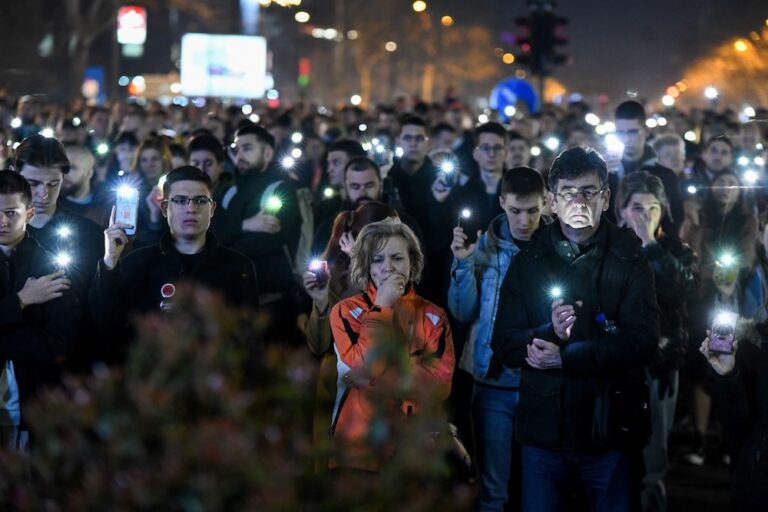A recent report shows that France, Italy, Malta, Greece, Cyprus, Sweden, and Finland want to legalise spying on journalists in the event of a threat to national security.
This statement was originally published on europeanjournalists.org on 12 December 2023.
The European Federation of Journalists (EFJ) strongly condemns the request by seven governments to legalise spying on journalists through the EU Media Freedom Act. The EFJ calls on the European Parliament and the European Commission to reject this illiberal and repressive request.
The negotiations on the European Media Freedom Act (EMFA) are coming to an end. On Friday 15 December, the last trilogue will only deal with Article 4 of EMFA and the deployment of spyware against journalists. In the meantime, Investigate Europe, Disclose and Follow The Money revealed documents, showing that some governments (France, Italy, Malta, Greece, Cyprus, Sweden, and Finland) want to legalise spying on journalists in the event of a threat to national security.
As shown by some notes from the EU Council of Permanent Representatives meeting in November 2023, published by the Investigate Europe consortium, Italy, Malta, Greece Cyprus, Sweden, and Finland want to legitimise spying on journalists; and to do that by using a law, meant to protect journalism, the European Media Freedom Act. The story dates back to June 2023, when the European Council introduced a new exception to the general ban on deploying spyware against journalists. It reads that the provisions on effective protection of journalistic sources “is without prejudice to the Member States’ responsibility for safeguarding national security”. Such an exemption, that would turn the protections originally agreed upon into empty shells, was in fact rejected by the European Parliament. As the text voted in October by the MEP’s states, the deployment of spyware could be only decided by an independent judge on a case-by-case basis.
At least seven EU member states are now pushing again for the “national security” exemption, that would in fact legitimise them to spy on journalists. As written in the notes, for Italy the exemption represents a “red line”. If not allowed to spy journalists, the far right government of Giorgia Meloni would most probably put a ban on the EMFA.
As stated by Investigate Europe, Germany launched a last minute effort to save the law, avoiding the explicit mention of “national security”. However, on Friday we could witness three scenarios: should these talks fail to reach an agreement, the law may collapse, leaving media freedoms across Europe vulnerable. If a middle ground is achieved, the law could establish crucial baseline measures for press freedom. But if the “national security exemption” passes, the law would harbor a dangerous gap.
“We are deeply shocked by the demands of these seven governments, which are flouting European legal standards of press freedom, as established by the case law of the European Court of Human Rights,” said Maja Sever, EFJ President. “Inserting such an exception in a text that claims to promote media freedom in Europe is pure provocation. We call on the European Parliament and the European Commission to firmly reject this illiberal provision, which threatens not only the protection of journalistic sources, but also democracy.”



